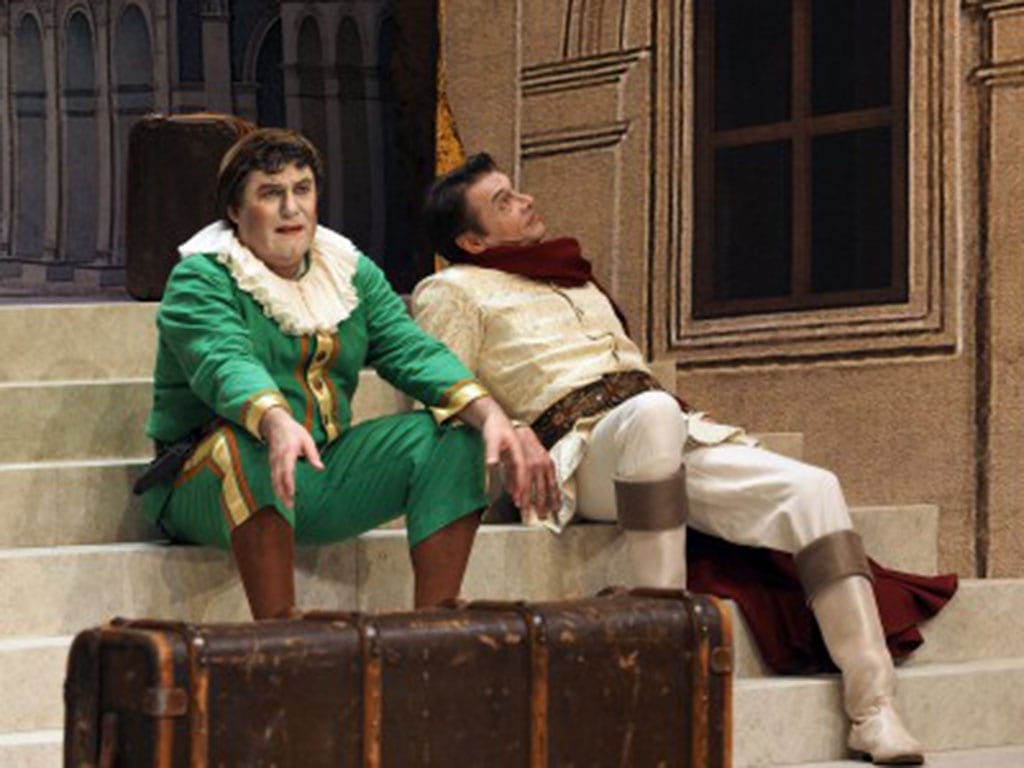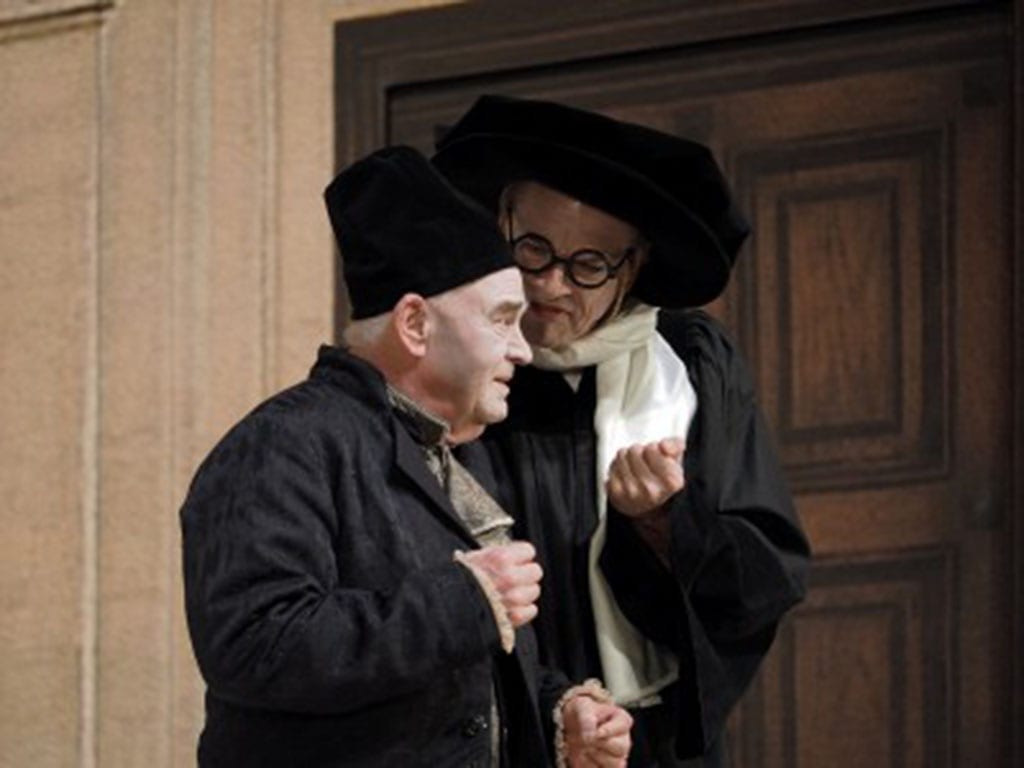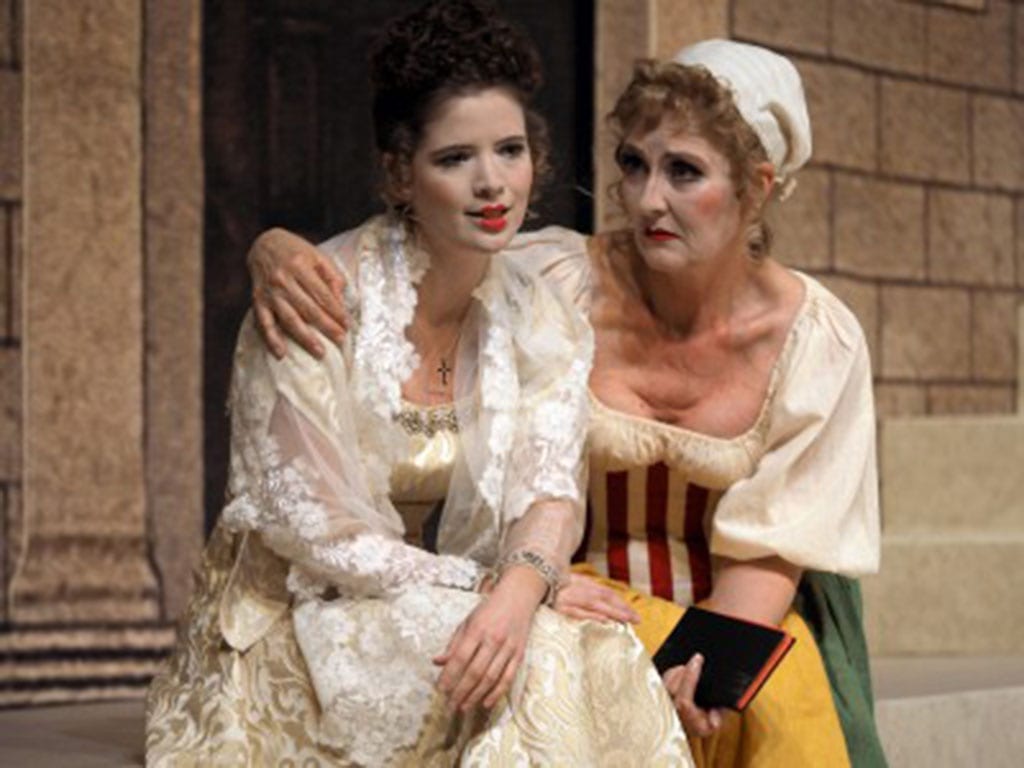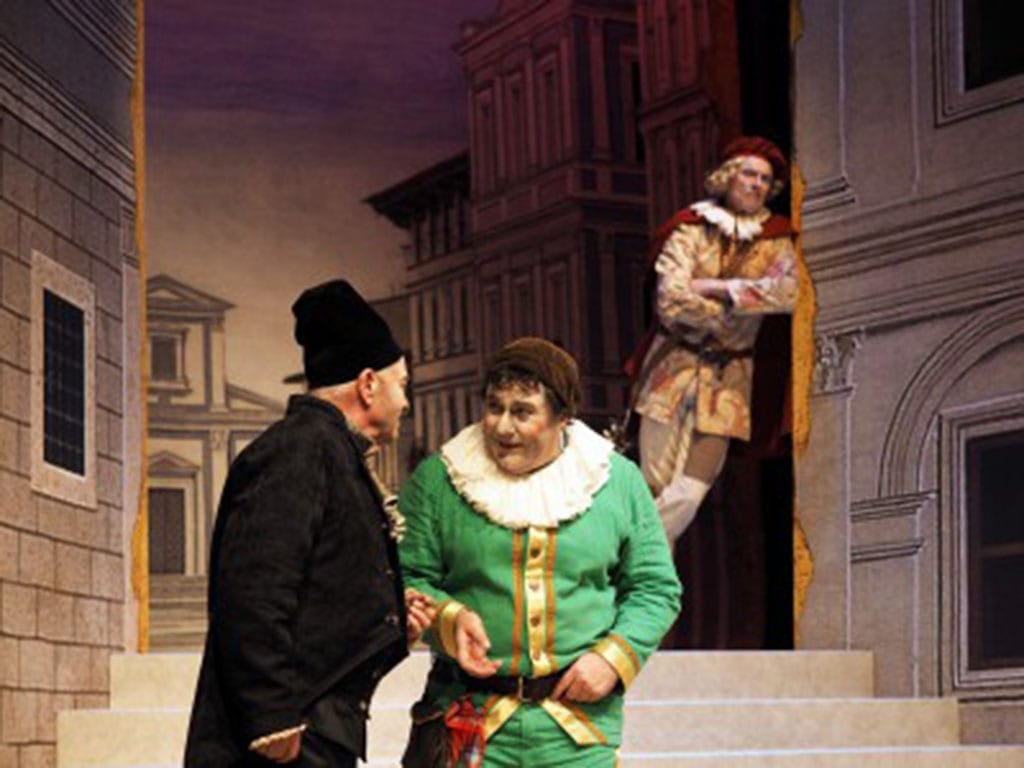Some plays can withstand the test of time. But a satire, with a very specific and personal target (the Medici family, who had barred Machiavelli from Florence’s political life) and slight date-rape overtones, doesn’t quite hit the mark these days. Mandragola, a 16th century satire by Niccolò Machiavelli, tells the story of Callimaco (Christopher Krieg), an aristocrat recently moved to Florence, who is desperately in love with the beautiful Lucrezia (Katarina Schmidt). The problem is, not only is Lucrezia married to the elderly senator, Nicia (Peer Jäger), but her devout purity means tempting her to sin will prove nearly impossible. In order to seduce her, Callimaco and his footman, Siro (Francesco Russo), come up with a plan: Senator Nicia desperately needs a child in order to avoid being the joke of Florence and the high taxes invoked against childless families. Callimaco, disguised as a doctor, tells Nicia that all he needs to do is have Lucrezia drink a special potion. The problem is, said potion will poison the first person to sleep with Lucrezia afterwards. Callimaco uses this lie to trick Nicia into convincing his wife that it is godly to sleep with another man outside of their marriage in order to have children. Another man, who just so happens to be Callimaco in disguise.
Now, while the satire itself is a little archaic for today, that does not mean this was not a worthy production of the piece. The set and costumes truly stand out, beautifully intricate and very reminiscent of Renaissance art and style. All characters had a grounded nature to them that undercut any tendencies towards archetypes and caricature. However, with the exception of the women (Iris Atzwanger and Katarina Schmidt) there was a lack of charm to really make the characters engaging. At least not engaging enough to make me forget I was watching a man sniff a lock of hair he had stolen from an unsuspecting woman and trick her into believing God had willed their affair. Mandragola proves to be a nice diversion into the past, a modified version of the original satire that respects the Renaissance style and mood, yet is ultimately archaic in its content and humor.
Mandragola, eine Satire aus dem 16. Jahrhundert von Machiavelli, erzählt die Geschichte von Callimaco, einem Edelmann der kurz zuvor nach Florenz gezogen und unsterblich in die wunderschöne Lucrezia verliebt ist. Das Problem ist nicht nur, dass Lucrezia mit dem betagten Senator Nicia verheiratet ist, sondern auch ihre strenge Gläubigkeit, die es niemals zulassen würde, sich unter diesen Umständen mit Callimaco einzulassen. Um sie dennoch zu verführen schmieden Callimaco und sein Diener Siro einen Plan: Da Senator Nicia dringend ein Kind benötigt, um nicht weiterhin der Witz von Florenz zu sein und auch, um die hohen Steuern für kinderlose Familien zu verhindern. Callimaco, getarnt als Arzt, erklärt Nicia daraufhin, dass er lediglich dafür Sorge tragen müsse, dass Lucrezia einen speziellen Trank zu sich nehme. Problematisch sei jedoch, dass die erste Person, die nach Zusichnehmens des Tranks mit Lucrezia schlafe, vergiftet werde. Callimaco nutzt diese Lüge um Nicia dazu zu bewegen, seine Frau davon zu überzeugen, dass es gottgefällig sei, mit einem Mann außerhalb der Ehe zu schlafen um gemeinsam Kinder zu bekommen. Und wer käme hierfür besser in Frage als Callimaco?




